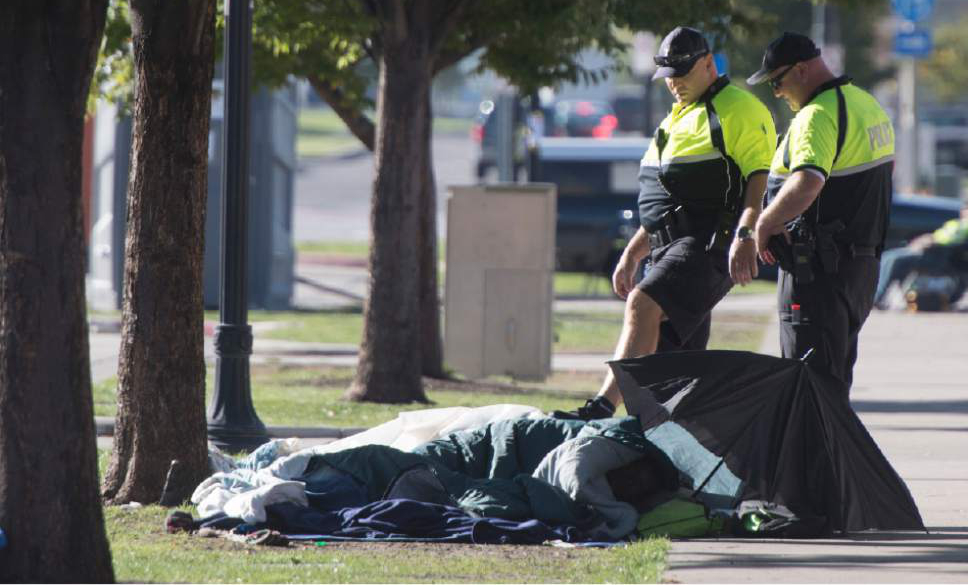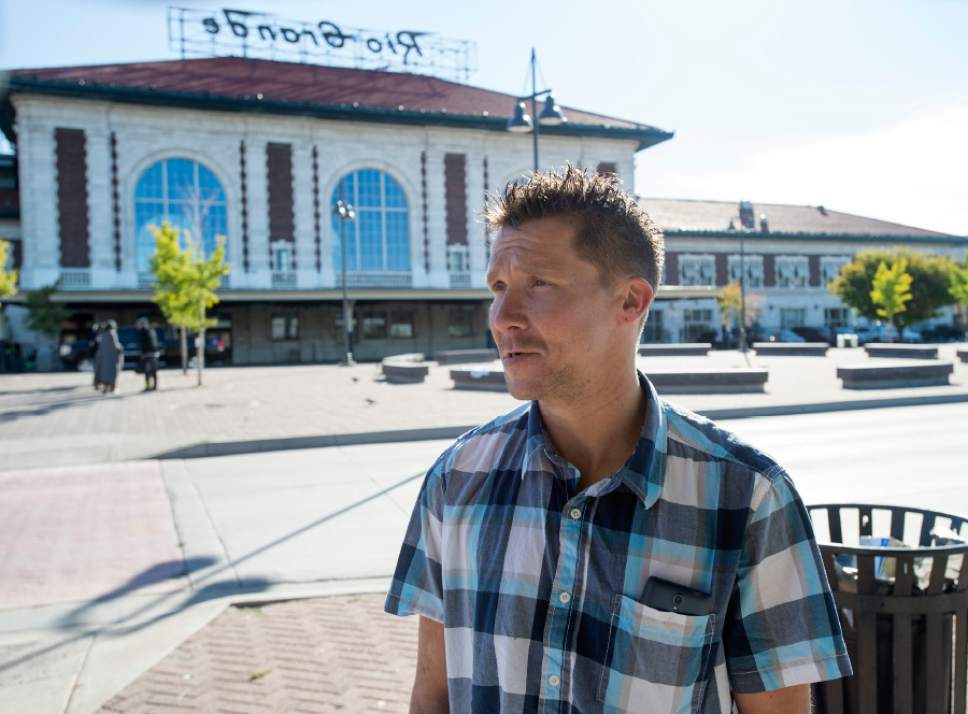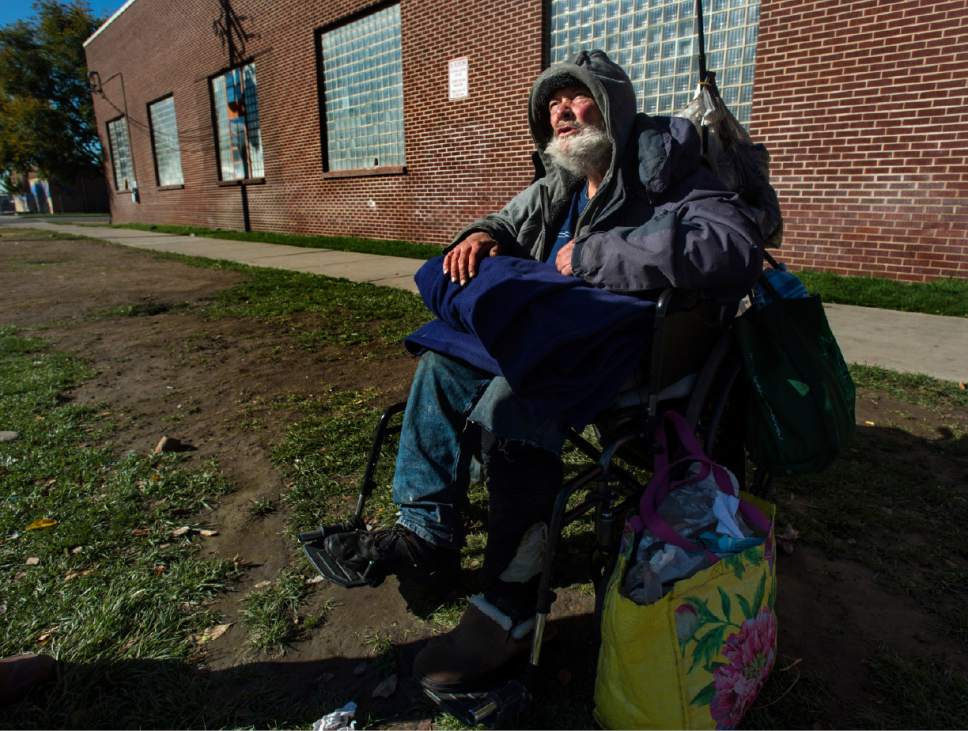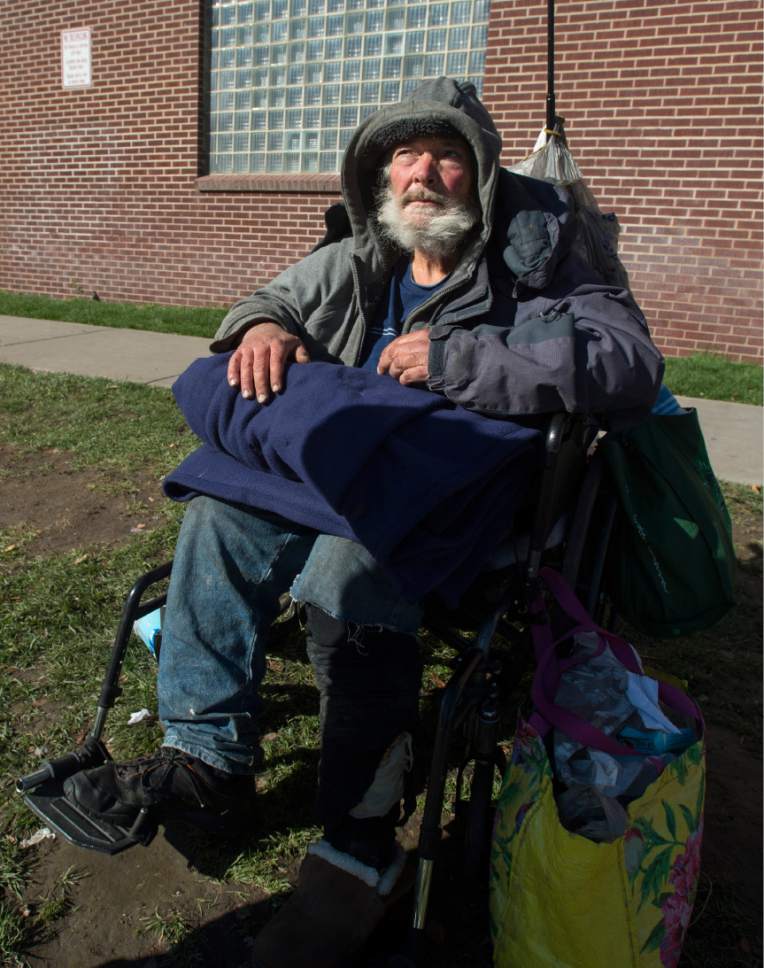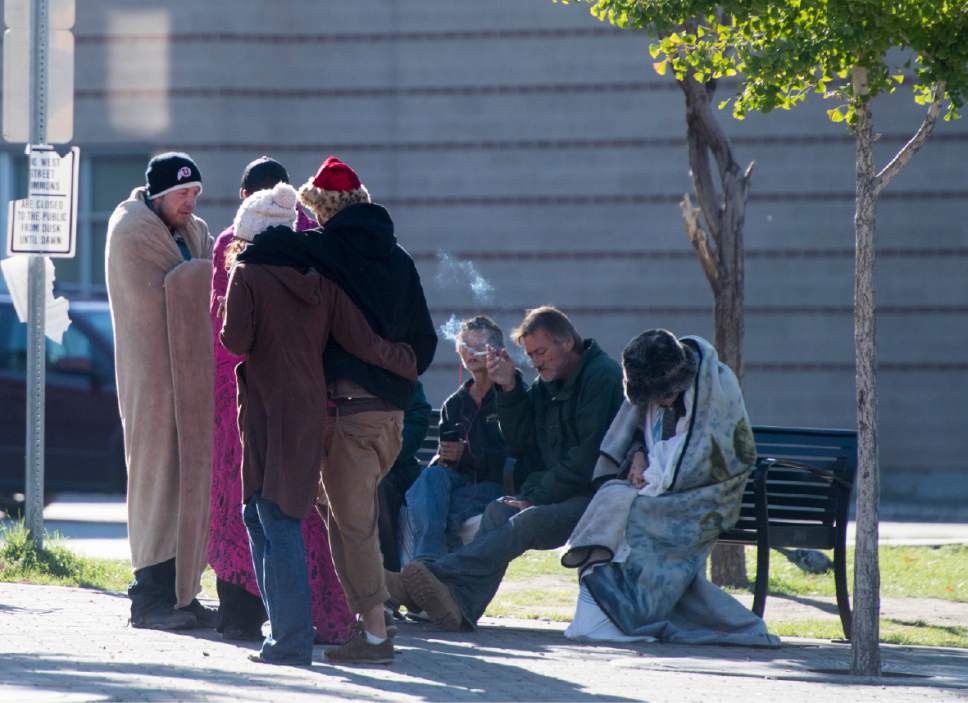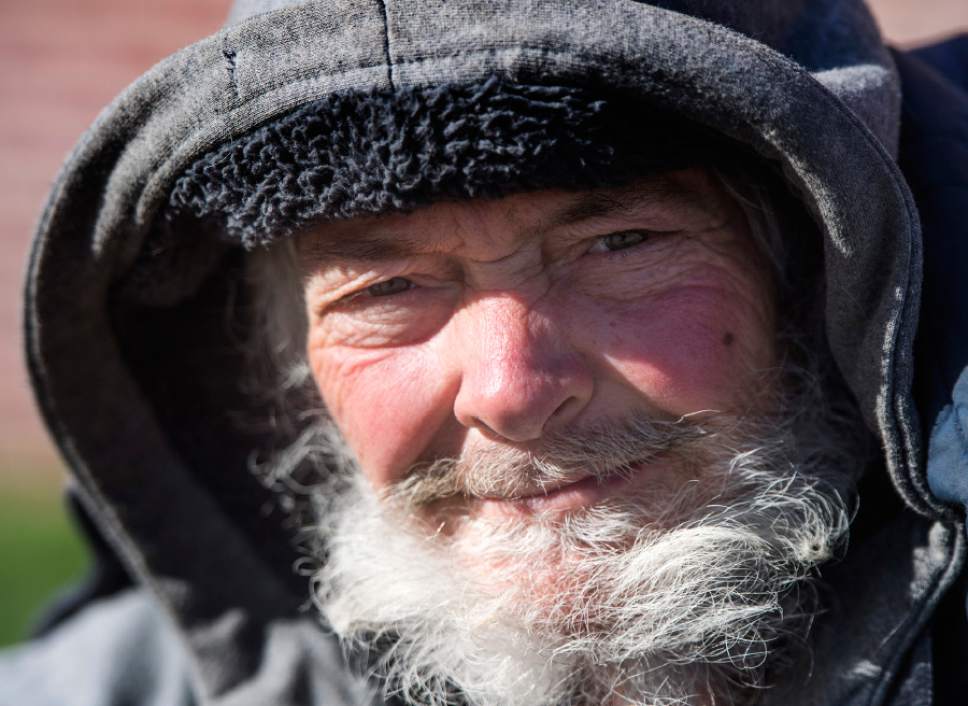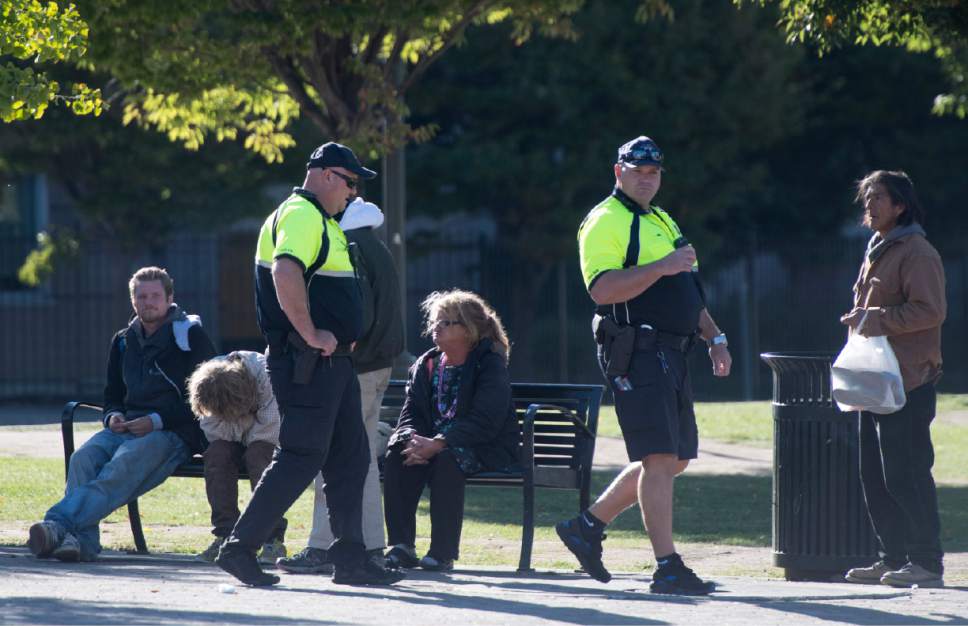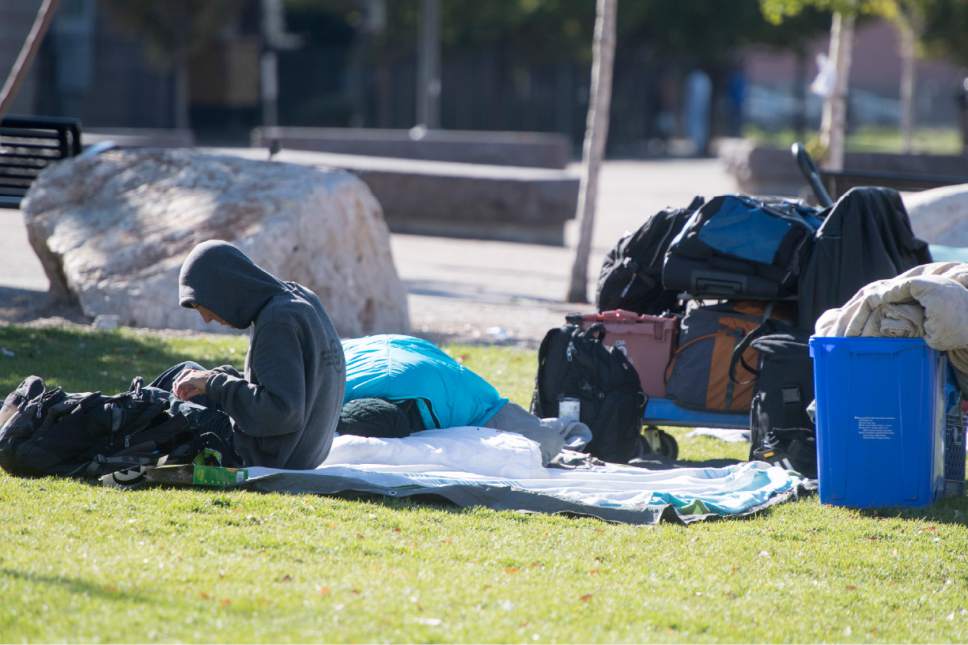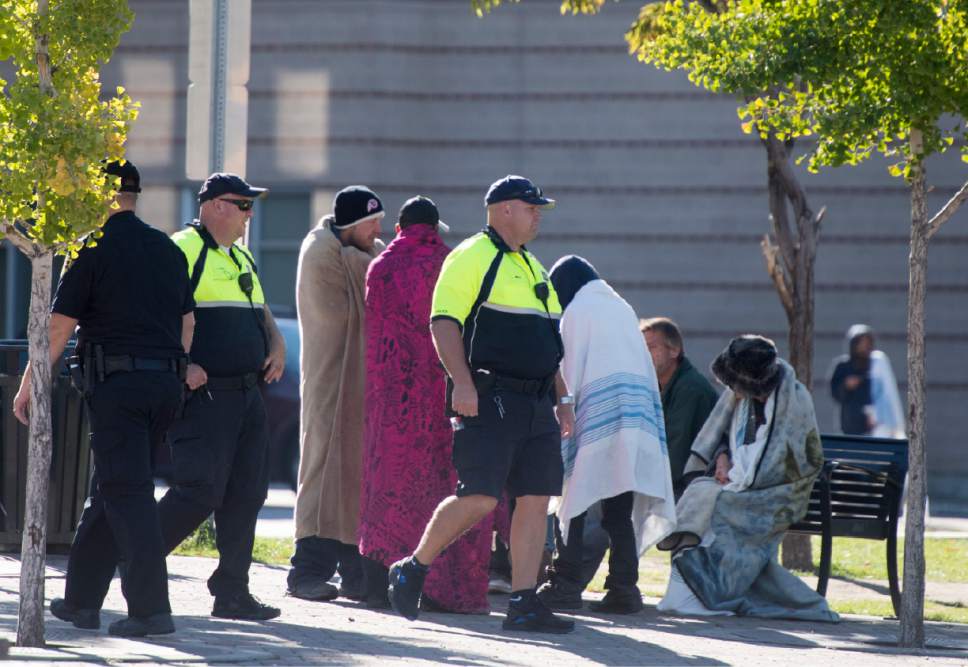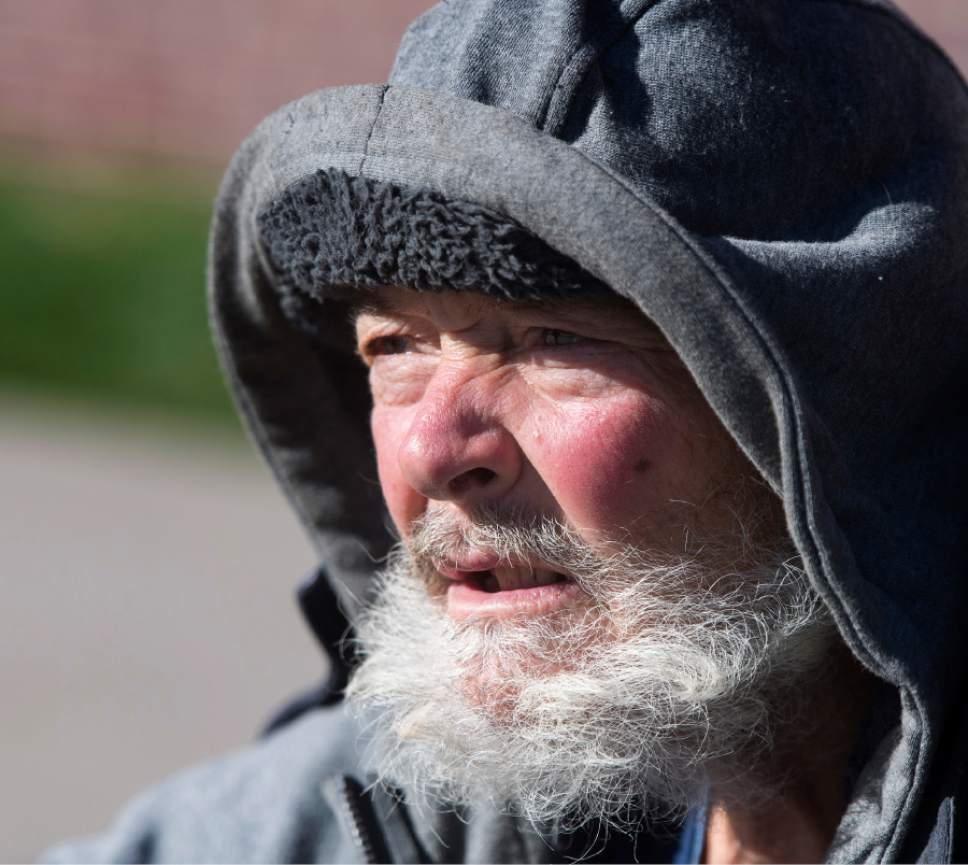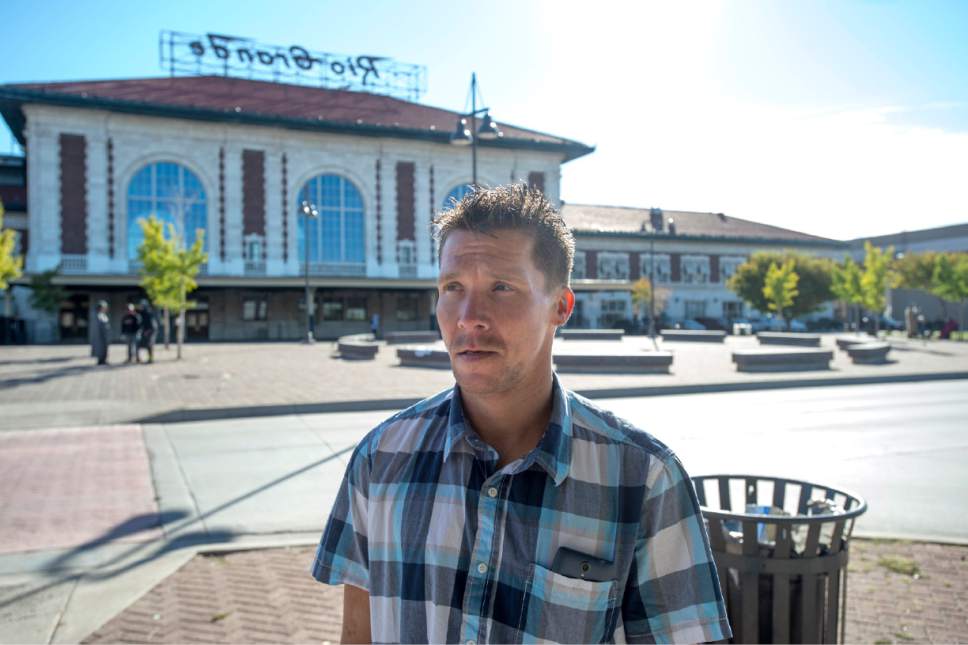This is an archived article that was published on sltrib.com in 2016, and information in the article may be outdated. It is provided only for personal research purposes and may not be reprinted.
Salt Lake City and county officials are optimistic about Operation Diversion that seeks to jail drug dealers while putting addicts in treatment, but homeless folks living in and around The Road Home shelter downtown see it differently.
Some called it Gestapo tactics running roughshod over civil rights. Others see it as a waste of time that hasn't improved the area. And some think it's just more mistreatment of the homeless by Salt Lake City police.
On Sept. 29 and Oct. 3, police arrested about 90 people along 500 West between 200 South and 400 South. Suspected drug dealers were sent straight to jail, but addicts were given the option to enter treatment.
In recent months, the area west of the Rio Grande Depot had seen rapid growth in campers and others hanging out there. The open-air drug market had expanded and violence was on the upswing, according to authorities.
Those blocks are far less populated now. Beyond those arrested, many campers apparently moved out of the area following the targeted raids. Authorities said they arrested only individuals with outstanding warrants or those caught in the act of drug dealing.
"They are just making it worse for everyone," said 20-year-old Mia Romano, who was wrapped in a blanket and smoking a cigarette west of the depot Thursday morning. Originally from Hawaii, she has been camping out in the area for six months.
The operation aimed at reducing crime in the neighborhood hasn't made it any safer, Romano added.
A 55-year-old homeless woman, who would identify herself only as M, said police are forcing people into treatment against their will. "That isn't helping a bit," she said.
Former addict John Branham explained that until people are ready to get clean, treatment won't succeed.
The 33-year-old Utah man has lived at the shelter for 18 months and has been sober for the last seven months, he said.
"You force somebody to get clean or go to jail — if someone isn't ready to get clean, they won't," he said. "It's that simple."
After the Sept. 29 operation, two men escaped treatment. They were arrested again on Oct. 3, according to authorities.
Operation Diversion is a coordinated initiative also involving the Salt Lake County sheriff and district attorney, as well as a dozen social services and treatment organizations. At a Tuesday news conference, police Chief Mike Brown, Sheriff Jim Winder and D.A. Sim Gill all said the operation was aimed at helping people get treatment and return to society as self-sufficient residents, rather than warehousing them in jail without attention to mental illness or drug addiction.
"We can't arrest our way out of this," Brown said.
The ACLU of Utah issued a statement recognizing Operation Diversion as "a good-faith effort to begin to address substance use disorder as a public health issue rather than a law enforcement responsibility. In the coming months, we intend to monitor the" program.
The ACLU said Operation Diversion "resembles other novel multi-agency approaches utilized in cities across the country, which have been previously praised by the ACLU of Utah as an improvement upon traditional drug enforcement operations."
Leo Kiemel, 60, has been camping along 500 West for two years. He said he doesn't like the shelter because, among other things, there is a lot of theft. He does not approve of Operation Diversion.
"My thoughts are they are overstepping their bounds and are violating our constitutional rights," he said of the program. "They don't go through other neighborhoods like that."
Shantel Silcox, 29, is originally from Tooele but has been living at the shelter for about two years.
She doesn't get the sense that the area is any safer since the operation. "But there have been a lot of weird vibes," she said.
"Sometimes I feel safe and sometimes I don't," Silcox said. "I've gotten in a couple of fights [over the past two years]. I don't know why, they just jumped me."
Thursday, bicycle police officers were rousting campers in the area. The Salt Lake County Board of Health has posted warnings forbidding camping in the Rio Grande neighborhood. In addition, Salt Lake City ordinances forbid camping throughout the city.
Police spokeswoman Christine Judd said the department has not changed its procedures, but continues to follow and enforce city ordinances as it always has.
But Bernie Hart, who runs a tai chi program for homeless people three days a week at Library Square, said it looks to him as though police have been more aggressive in the last week rousting campers.
"It's too easy to use this [Operation Diversion] to harass the homeless," he said. "It might be intended to relocate people [out of downtown]."


